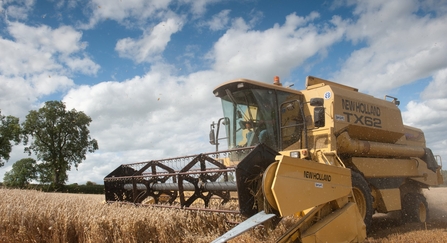Kent Wildlife Trust has a vision of a #Wilder Kent, where an abundance and diversity of wildlife thrives, where nature is healthy and connected and where we all receive its numerous benefits: clean air, sustainable energy, fresh food, beautiful surroundings and much, much more. Every person, business and industry can make a positive difference to our natural world.
So where better to make a difference than the agriculture industry, which is responsible for managing a full 70% of the UK’s land area? The way farmland is managed has an enormous impact on the benefits it can bring to the whole environment: it can affect soil quality, carbon capture, flood management and the survival – or not – of hundreds if not thousands of species. A recent poll showed 92% of the public want farming to focus on tackling the climate and nature crises [1].
The Agriculture Bill, which is currently working its way through Parliament, is a big step towards a future farming system that takes an active role in nature’s recovery. The proposed Bill sets out a future where farmers are supported to support wildlife and other types of ecosystem services. As the Bill progresses it’s vital that Government retains this focus on providing “public money for public goods”. But more needs to be done to make this legislation really work for nature, and ultimately for us:
- Quickly progress the development of agriculture policy to replace the EU’s Common Agricultural Policy – specifically the Environmental Land Management system (ELMS).
- Reward farmers and land managers properly through long-term and substantial funding – at least £3bn - for their role in fighting the climate and nature crisis and delivering benefits to society for which the market cannot pay[2].
- Close gaps in our post-EU regulatory regime, like safeguarding of ponds and hedgerows, and include a power to introduce and enforce a new regulatory framework for agriculture which addresses the gaps[3].
- Ensure that future trade deals and legislation prevent damage to nature and natural resources, now and for future generations.
